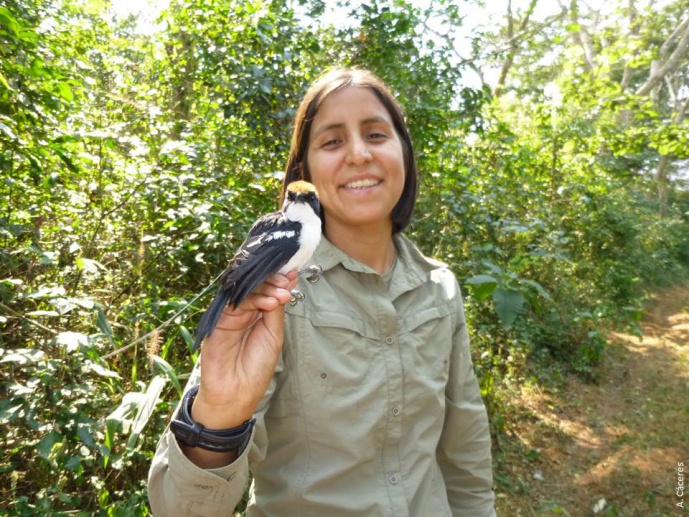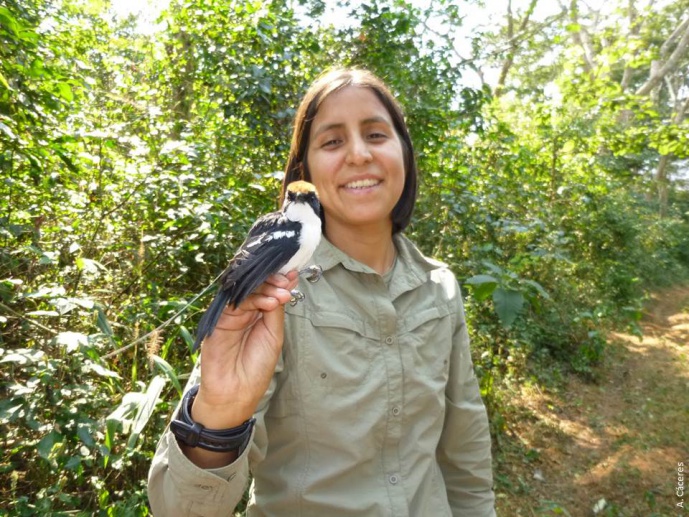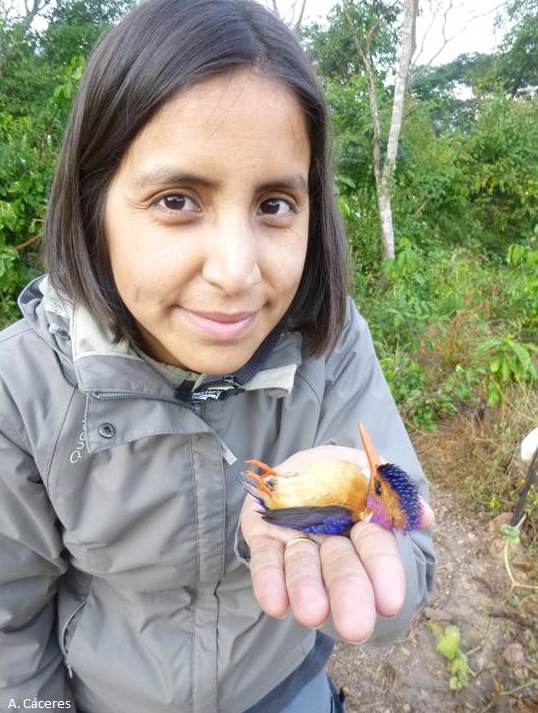Aimy Suzanne Cáceres Pinedo
PhD Student
I am a Peruvian biologist with an interest in biodiversity conservation and sustainable use of natural resources.
I received a degree in Biology-Ecology from the Universidad Nacional Agraria La Molina in Lima, Peru. For my dissertation project I assessed the use of morphometric characteristics for sexing Blue-headed Macaw (Primolious couloni) which at the time was the least studied species of all psittacids. Afterward I had the opportunity to participate in different projects. I worked with ex-situ conservation of Neotropical birds and mammals in Peru and Brazil. I also worked with sustainable used of natural resources with the Pilagá community in the Argentinean Chaco. Finally, I spent two years working in the Peruvian Amazon for an ecotourism company in research and conservation.
In 2007 I moved to Angola and spent one year and a half working for an environmental company in ecotourism prospection and environmental education. During this time I travelled around the country and realized its amazing biodiversity and the need for research and conservation.
I went to Portugal to get a MSc. degree from the University of Porto. My dissertation project assessed if ecotourism could be used as a conservation tool for the Afromontane forest of Mount Moco in Angola. During this time, I also participated in other projects for bird conservation in the country (Birds Angola & MountMoco.org).
At the moment I am doing a PhD in the University of Porto with the project: "Effects of deforestation and forest degradation on the endemism-rich bird communities of the Angolan Scarp Forests" (SFRH/BD/78778/2011). I look to understand the ecological needs of threatened endemic bird species and the impact of human activities in order to establish guidelines that will allow their conservation (for further information, visit Kumbira Forest Project).


